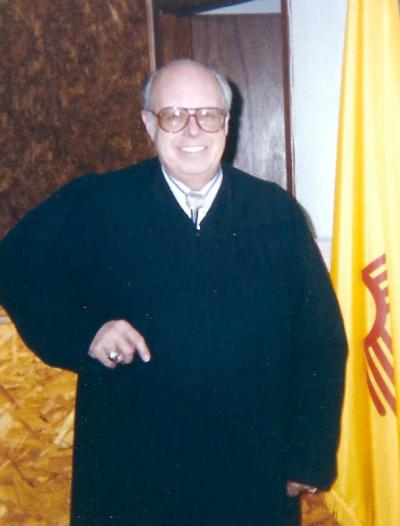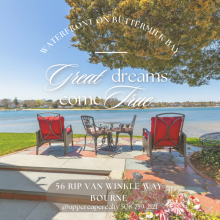Dartmouth's justice of the peace proves love is borderless
When he became a magistrate judge in New Mexico, Dr. Patrick Curran could perform a wedding in less than 10 minutes. But sometimes the process behind the simple ceremony was much more complicated.
“I had this one person who came to me and said ‘We have a problem,’” said Curran.
The couple had attained a marriage license, but the groom, who was from Mexico, had entered the United States on a limited entry permit to do so. The two wanted to marry, but the groom couldn’t get back into the country.
The solution involved having the bride (and Curran) stand in New Mexico while the groom stood in Mexico. Curran said the bride and groom clasped hands over the border during the ceremony. At the time, this sparked questions regarding the legality of such a union.
“As a judge or a justice of the peace, if they bring you a license that’s signed by the town or county clerk, you have an obligation to perform the wedding,” said Curran.
Curran worked as a judge from 1994 to 2012. He said that, when he started out, there would be at least one wedding every weekend. After couples picked up a license from the county clerk’s office, they would head to the court and wait for the judges to perform the wedding between cases.
“I did over 1,800 weddings. In the two-full terms that I served, I had done almost 900. Then I was appointed senior judge,” he said.
At the time, Curran was situated in Doña Ana, New Mexico, a county which borders Texas and Mexico. The number of weddings he performed sharply increased over time due to his close proximity to Fort Bliss, located in El Paso County in western Texas.
“Before the guys were shipped out to Iraq or Afghanistan, they did their final training at Fort Bliss. When they got their orders, they called the girlfriend to come down and get married before they went,” said Curran.
He said that Texas, like Massachusetts, has a three-day waiting period before a marriage license can be issued. New Mexico does not, meaning that it was the perfect state to have a wedding performed and a license issued in one day. He said he would perform as many as three military weddings daily.
Those weddings were always simple, Curran said. They were either performed in the courtroom of outside in a nearby park that honored veterans.
“They’d drive up from Fort Bliss, they’d go to the county clerk’s office, get the paperwork and then come right over to the court or park, and I’d perform the wedding, which took eight minutes,” he said. “And two minutes for signing papers.”
Then the couple would have to return to the county clerk and have the paperwork filed. They could do all that in a day.
After resigning from his position in 2012, he came to Dartmouth to be closer to his daughter, a professor at UMass Dartmouth. After spending some time in the area, he realized that Dartmouth didn’t have a justice of the peace, so he applied for the job.
He said he likes to tailor wedding ceremonies to the wants of the two spouses. All that’s required from his end are three basic steps.
“There’s the introduction, where I establish that I’m qualified to perform a wedding, and then I ask them if they’re willing to marry each other – it’s the ‘I do, I do,’” he said. “The second part is the vows. And then, finally, by law I pronounce them spouse and spouse.”
Between those steps are natural breaks, and he allows for customization during those pauses that can vary from lighting candles, singing or offering a prayer. He said couples are often unaware of how many possibilities they can include in their wedding.
“The funny thing is that most people don’t know what they want at a wedding. They don’t know the options they have,” said Curran. “I like to tailor the wedding to their desires.”
Dr. Patrick Curran, Dartmouth’s justice of the peace, can be reached at 575-496-3152 or at patrick2193@msn.com.














